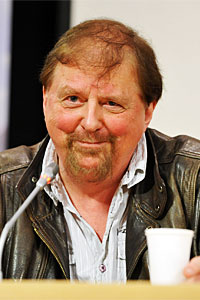Another of the five-yearly anniversaries has rolled around, and it's time to write another think-piece about the long-term meaning of the massacre on Beijing's Tienanmen Square on 4 June 1989. But 30 years later, what is there left to say?
Great changes were already under way in the Communist-ruled parts of Europe in 1989. Reformist Soviet leader Mikhail Gorbachev visited Beijing after the students had taken over the square in late April, and he obviously thought the same process was under way in China. Maybe it was, but it was violently aborted -- and it has still not recovered.
That's not what people thought at the time. Hundreds, perhaps thousands of students were killed on the square -- the soldiers burned the bodies in a massive pyre right on the square, so there was never an accurate count. Hundreds or thousands more died elsewhere, because similar demonstrations were put down in every major Chinese city. And we all thought: this will never be forgotten.
The students weren't counter-revo- lutionaries. Their hero, the man whose death they were honouring when they occupied the square, was Hu Yaobang, a lifelong Communist, a veteran of the Long March, who simply believed it was high time to ease up on the controls four decades after the Communists took power in China.
For that Hu, then General Secretary of the Chinese Communist Party, had been forced into retirement by party hard-liners in 1987. But everybody knew what he wanted, and when he died two years later the students came out to demand it again: government accountability, freedom of the press, freedom of speech, and free trade unions.
The dominant conservative faction in the Chinese Communist Party responded by killing them, and then set out to erase all popular memory of what had happened. It can't be done, said all the journalists outside China: they will never be forgiven. The crowds will be back on the streets one of these days, and there will be a great reckoning and radical change.
Well, not. Thirty years later, most Chinese millennials are ignorant of exactly what happened in 1989. The older generation remember, but they dare not mention it in public and they are a dwindling minority. Journalist Louisa Lim has accurately described contemporary China as the "People's Republic of Amnesia".
Why did this happen, and has the notion of a freer future really gone down the memory hole in China? Start with the fact that the Soviet Union was 72 years old in 1989, whereas the Chinese People's Republic was only 40.
That extra generation meant that there was nobody still in power in Russia who had actually ordered the deaths of thousands of people. Not only the revolutionary generation but also the Stalinist generation were gone, and by the 1980s the career Communists who had climbed the greasy pole of power were mere bureaucrats.
They thought they were hard men too, but in fact they weren't anything of the sort. A few of them tried to carry out a coup and restore Communist rule in 1991, but they were actually trembling with fear as they spoke on TV, and they were seen off in a couple of days. Whereas China's rulers in 1989 still had lots of hands-on experience with killing people.
Some of them, like Hu Yaobang and his successor Zhao Ziyang, were genuine idealists who felt the party's controls must be loosened now that the revolution was an accomplished fact. Zhao actually went to the square at dawn on 19 May and addressed the students, urging them to hold fast to their demands.
"We are already old, we do not matter anymore," he told them -- but Zhao already knew that he had lost the argument, and that the party leadership had decided to clear the square by force. He had also been stripped of his own position, and would live the last 15 years of his life under house arrest.
The actual massacre was delayed for a further two weeks because the soldiers in Beijing had been fraternising with the students and could no longer be trusted to kill them. It took two weeks to replace them with fresh troops who knew nothing about what was happening in Beijing and would kill the "counter-revolutionaries".
So Communist dictatorship survived in China while it peacefully expired in Russia. It still looks solid today: the current leader, Xi Jinping, has just effectively declared himself president-for-life. But Communist rule in China has now reached the magic age of 70. Is it immortal? Probably not.
Communist rule in the Soviet Union would probably have survived if the economy had been growing strongly. What brought it down was the insolence of absolute power combined with a failure to deliver the goods economically. The Chinese Communist regime is very insolent, but it will probably survive as long as it delivers the goods.
However, China has a market economy now, and market economies have recessions. The official Chinese growth rate is still 6%, but the real rate of growth has already fallen to somewhere between 3% and zero. The next five or 10 years should be quite interesting.
Gwynne Dyer's new book is 'Growing Pains: The Future of Democracy (and Work)'.
